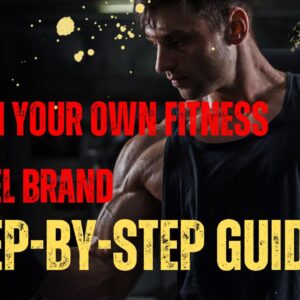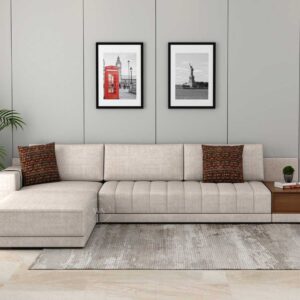Benefits of Using Appropriate Sports Clothing for Health
This isn’t just about looking good at the gym. Choosing the right gear has real, measurable effects on your body and performance. So, what are the benefits of using appropriate sports clothing for health? Let’s break it down.
Enhanced Comfort and Mobility
Properly designed fitness wear offers stretch, breathability, and ergonomic support, letting you move naturally. When your gear doesn’t restrict you, your body performs better—fewer distractions, better form.
Sweat Control and Breathability
High-quality moisture-wicking fabrics keep you dry, cool, and focused. Trapped sweat can lead to skin irritation and overheating. The right clothing keeps your body at a regulated temperature and improves endurance.
Reduced Injury Risk
Compression tights, supportive sports bras, and cushioned shoes all help protect key muscle groups and joints. Wearing the right sports clothing can prevent strains and promote better posture—two game changers for long-term health.
Boosted Confidence and Mindset
Health isn’t just physical. When you feel good in your clothes, your confidence skyrockets, boosting motivation and encouraging consistency in your workouts. Confidence alone can push performance forward.
🤝 Choose Right Clothing Vendor for Success
Your vendor is your secret weapon—or your weakest link. If you don’t choose right clothing vendor from the beginning, your entire brand can suffer.
What Makes a Vendor Reliable?
You want someone who not only understands fashion but is experienced in producing functional fitness clothing. Look for vendors who:
-
Specialize in performance wear
-
Offer customization options
-
Are transparent about turnaround times and quality control
Domestic vs. Overseas Vendors
There’s no one-size-fits-all answer. Domestic vendors usually offer faster shipping and easier communication. But if you’re working with a tight budget and aiming for high-volume production, overseas suppliers (like those in China, Pakistan, or Vietnam) might be more cost-effective.
Still, always request samples, verify references, and even consider a factory visit if possible.
MOQ (Minimum Order Quantity) Matters
Small brands should negotiate lower MOQs. A flexible vendor who understands startups can help you grow without pressuring you into buying thousands of units upfront.
Designing Your First Collection
This is where your creativity meets your customer’s needs. You’ve done the research, now it’s time to design your first collection. Whether it’s high-waisted leggings, cropped hoodies, or moisture-wicking tanks—make it yours.
Start Small but Strong
Don’t try to launch with 20 different pieces. Focus on 4-6 strong items that:
-
Represent your brand identity
-
Solve specific problems (comfort, breathability, style)
-
Offer variety (a mix of tops, bottoms, and outerwear)
It’s easier to build hype around a few killer pieces than a cluttered lineup.
Focus on Functionality
Every stitch, seam, and fabric choice should serve a purpose. Remember, one of the key benefits of using appropriate sports clothing for health is better performance and injury prevention. Your collection must reflect that. Think compression panels, stretch zones, and anti-chafe stitching.
🎯 Sizing, Fit, and Inclusivity
Let’s talk about something most startups overlook: FIT.
Offer a Realistic Size Range
Athletes come in all shapes and sizes. Offering only small to large won’t cut it anymore. Include plus sizes, petite fits, and tall options. It’s not just the right thing to do—it’s smart business.
Test Your Samples Thoroughly
Fit testing should go beyond mannequins. Recruit real people with diverse body types to test your pieces. Comfort, flexibility, and performance are top priorities—and are directly linked to the health benefits of using appropriate activewear.
📸 Build Your Brand Identity
This is where your vision becomes reality—how you look and speak as a brand.
Create a Strong Visual Style
Your logo, color scheme, fonts, and website design should all align with your target customer. Are you edgy and urban? Clean and minimal? Loud and motivational? Define it.
Craft a Brand Voice
Use your messaging to form a connection. If you’re selling to Gen Z gym rats, keep the tone energetic and meme-friendly. If your target is yoga moms, maybe a soothing, supportive tone works better.
Consistency across your packaging, website, and socials helps build trust.
📦 Choose the Right Clothing Vendor (Again!)
Yes, we’re circling back. That’s how important this is. You must choose right clothing vendor if you want your fitness brand to thrive.
-
Vet multiple suppliers
-
Compare sample quality
-
Check for ethical manufacturing practices
-
Read real reviews and testimonials
A good vendor will help you scale and deliver quality consistently. A bad one will delay orders, botch production, and sink your reputation.
🛒 Setting Up Your Online Store
It’s go-time. You need a storefront that looks good and works even better.
Choose the Right Platform
Start with Shopify, WooCommerce, or BigCommerce. These platforms are beginner-friendly and packed with e-commerce tools.
Optimize for Mobile and Speed
A huge chunk of your customers will be shopping from their phones. Slow websites = lost sales. Use fast-loading themes and compress your images.
Use High-Quality Product Photos
Show every angle. Include models of different body types. Add videos if possible. Your product pages should convince customers they’ll feel amazing in your clothes.
📣 Launch and Market Your Brand
It’s time to share your brand with the world. But don’t just post once and hope for the best.
Create a Launch Campaign
-
Use countdowns and teasers
-
Partner with micro-influencers
-
Offer pre-order discounts or bundle deals
-
Use email to build hype early
Go All-In on Social Media
Instagram, TikTok, YouTube Shorts—these platforms are goldmines for fitness fashion. Post regularly. Use trending sounds. Share user-generated content.
📊 Analyze and Improve
The first launch is just the beginning. Now comes the fun part—optimizing.
Track Key Metrics
Keep an eye on:
-
Conversion rates
-
Return rates
-
Bestsellers vs. duds
-
Customer reviews
These numbers will guide your second drop. Was sizing off? Did the tank tops sell faster than joggers? Let the data tell you.
🚀 Scale with Confidence
Once you’ve got product-market fit, it’s time to grow.
Expand Your Collection
Add new styles, colors, or even launch limited editions. Always test in small batches before scaling big.
Explore Wholesale or Pop-Ups
Selling to gyms, yoga studios, or running a pop-up booth at a fitness expo can increase brand awareness and revenue.
Automate What You Can
Use tools to automate inventory, shipping, and marketing flows. You want to work on the business, not just in it.
🔚 Conclusion: From Idea to Impact
Starting a fitness clothing line isn’t just about selling clothes—it’s about empowering people to move better, feel better, and live healthier lives. From choosing the right vendor to designing for health benefits, every decision shapes your success.
So don’t just dream it—build it.
❓FAQs
Q1. How do I choose the right clothing vendor for my fitness brand?
Start with suppliers experienced in activewear. Check samples, reviews, MOQs, and whether they offer customization and ethical manufacturing.
Q2. What are the top benefits of using appropriate sports clothing for health?
Better mobility, temperature control, injury prevention, and enhanced motivation—all of which lead to improved physical performance and well-being.
Q3. How much money do I need to start a fitness clothing line?
You can start with as little as $2,000–$5,000 for a small run, but plan carefully. Factors include sample costs, website, marketing, and inventory.
Q4. What type of activewear sells the best?
Staples like high-waisted leggings, supportive sports bras, and sweat-wicking tops tend to do well. But it depends on your niche and audience.
Q5. Can I start a fitness brand without fashion experience?
Absolutely! You just need strong ideas, good vendors, and a customer-first mindset. Partner with experienced freelancers if needed for design or branding.





